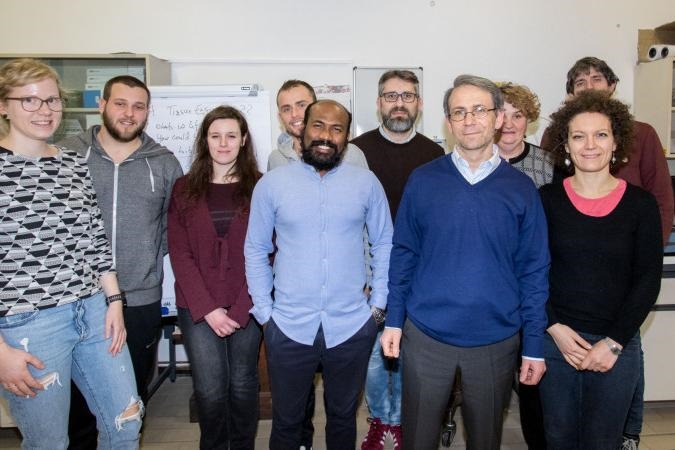Bioplastics, scaffolds, intelligent polymers. The chain of innovative materials at the University of Brescia brings its researchers together in a single physical place, side by side. The projects are mixed – academic and private; recipients of different sectors: mechanics, automotive, agriculture, biomedical. Within MaSTLab, the Materials Science and Technology laboratory of the Department of Mechanical and Industrial Engineering, materials, design and production technologies and applications are studied. Among these, a wide range of polymers capable of adapting to the environment, be it a machine, the earth or even the human body.
In agriculture there is a lot of plastic. Like the black sheets for mulching, which “are often burnt outdoor because they are dirty and difficult to recycle,” explains Prof. Luciana Sartore. To avoid dangerous practices and waste we have made films that naturally degrade at the end of the plant’s production cycle ». They are sheets made with scraps from the tanning and agrifood industry, which can be used as fertilizers. There is also a spray version, whereby the film is sprayed directly onto soils that are difficult to reach with normal sheets, such as vineyards. With the same principle, the group has also invented biodegradable pots for seedlings: flowers and vegetables are buried in their container, which in the degradation releases the necessary fertilizer.
From agriculture we pass, from one room to another, to tissue engineering projects, an interdisciplinary sector that deals with regenerating damaged tissues and, in the future, human organs. Here we design the starting material, that is the scaffolds, the three-dimensional scaffoldings in which the inseminated cells grow and organize themselves according to a scheme established each time to generate a specific fabric. “So far we have succeeded in creating a model for bone and cartilage reconstruction – says Kamol Dey, post-doc from Bangladesh -. We have created biocompatible hydrogels based on natural polymers, such as gelatin, chitosan, cellulose and water. The in vitro tests have given excellent results “.
And it is above all in the biomedical field that 4.0 technologies are put to the test at MaSTLab. There is a line of research concerning shape memory materials: intelligent polymers that, by responding to external stimuli such as temperature or light sources, change shape. Their applications are numerous, starting from minimally invasive surgery.
The team coordinated by prof. Stefano Pandini designs bi-compatible and bioabsorbable materials to be introduced into the human body, for example in the form of retractors for the veins that open only once positioned or capsules that release the drug in a controlled manner. But not only. «Intelligent polymers are also used for aerospace and aeronautics – explains the teacher -, as self-folding structures also suitable for sequential handling. It is the step beyond additive manufacturing: these polymers add a fourth dimension to 3D printing, which is precisely the possibility of evolving the form ».
In addition to internal research activities, the group counts on a good network of collaborations. With companies, to which MaSTLab also offers consultations, with international bodies, such as the European Structural Integrity Society with which a team is developing new test methods to assess the structural integrity of polymeric materials (referent Prof. Francesco Baldi), and with other universities.


